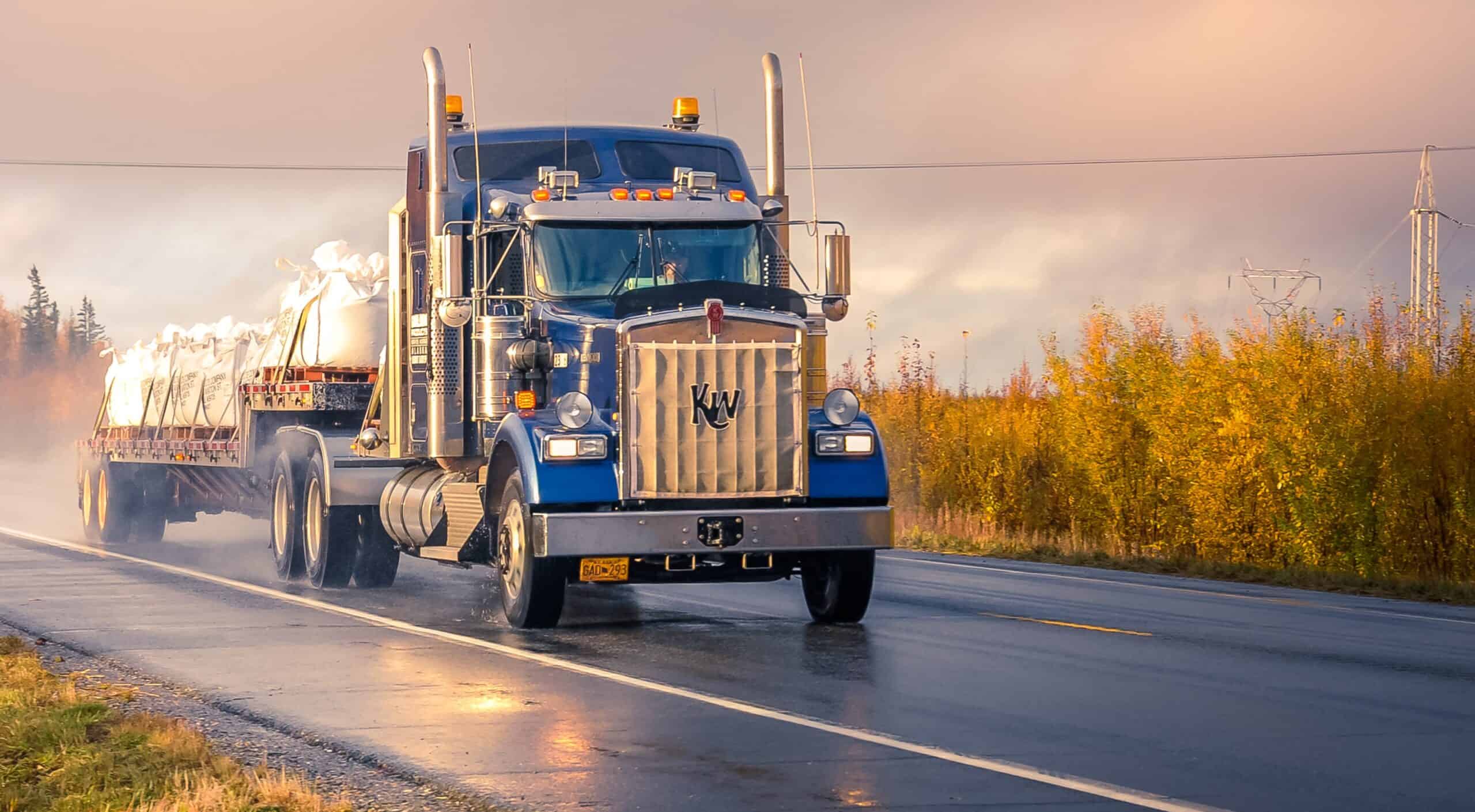Not all hauls are created equally. Whether you’re new to the world of trucking or you’re a vet moving to a heavier haul, there are multiple factors to consider when looking for the right equipment trailer.
From frame to finish, the heavier the haul, the more preparation you’ll need to enact. Keep reading to learn about how you can protect your truck, your trailer and your load with the help of the right equipment.
What Is an Equipment Trailer?
Equipment trailers are the backbone of utility vehicles that are used to haul extremely heavy equipment, hauls such as automobiles, building materials like pylons, service equipment like tractors and various other items that require the help of a utility trailer.
How Does an Equipment Trailer Work?
An equipment trailer is hitched or docked to the back of a truck. Each type of equipment trailer has a specific utility, with some going as far as being built for extremely specific uses. That is where its name of utility trailer comes from.
Types of Equipment Trailers
There are a plethora of different types of equipment trailers, but some of the most common are single, tandem, flatbed, enclosed, deckover and fender.
Axle Type
The only type that actually has legal precedence, axle type needs to be taken into account for all types of equipment trailers in conjunction with the bed and deck types.
Single
With single-axle trailers, there is one load-bearing axle that more often than not does not come with breaks. Legally, most places with large trucking communities have laws requiring vehicles to have braking systems in place. In America, you cannot legally haul more than 3,000 pounds with a single axle, which means you won’t be working on larger hauls when using this equipment.
Tandem
For any haul above 3,000 pounds, you must have a tandem axle system. A dual-axle system will work better for multiple terrain trips. Others have two load-bearing axles, usually with additional slipper spring suspensions or leaf springs for added safety.
Bed Type
Flatbed
Perfect for moving small equipment, oversized equipment that may have odd proportions, and general heavy machinery, flatbed trucks aren’t the best for anything that needs to be out of the elements. Even if the flatbed has guards on either side, the items being hauled will still be fully exposed since flatbeds never have roofs.
Enclosed
Inversely, enclosed trailers are just that, meaning you can put more items in them than you can with exposed equipment. Enclosed beds keep hauls safe from all of the natural elements. However, enclosed trailers are far heavier than flatbeds. On the plus side, items in enclosed trailers are far more protected from theft and damage.
Deck Type
Deckover
Deckover trailers are utility trailers that are built above the wheels. These types of trailers allow for large-width items to be hauled securely.
Fender
Deckover trailers are above the wheels, fender equipment trailers are built between the wheels, which means they have much less wiggle room width-wise, but because they lay between the wheels, the trailer is far lower to the ground allowing for a much easier load in and out.
6 Considerations for Choosing an Equipment Trailer
Utility trailers serve specific purposes. If you’re moving cars for a manufacturer, your utility equipment will be different from what someone moving tractors for farmers will use.
Similarly, if you’re moving cattle for farmers, your utility will be different from that of someone who is moving produce from farms to tables. Here are six things you should consider before you buy any type of equipment.
Frame
Do you know what an I-Beam is? If not, you should familiarize yourself with them. This generally 12-, 16- or 19-pound-per inch framing material dictates the type of things you can haul as well as how heavy these things can be.
Hauling Capacity
Speaking of what you can haul, how much you can haul and how heavy of items you can haul, your hauling capacity refers to the safest payload that your truck can handle. This capacity is measured by weighing all of the cargo you are hauling and then adding the empty weight of your truck.
Though you could probably throw more things into the bed of your truck, you should never surpass your hauling capacity. This is because the hauling capacity follows both legal safety regulations and structural limitations.
Wiring
One thing that won’t be going wireless anytime soon is trucks. Wires control gauges, braking systems, lit communication, refrigeration units and more. Make sure all of your wiring is enclosed to prevent moisture or undue weathering from quickly corroding and rusting the wires.
Durability
You should never try to transport cargo that is more durable than your container. You need to make sure your utility trailer is as durable as you need it to be in order to handle the loads.
When thinking about durability, you should prioritize the frame, the axles and the brakes. When operating sturdy equipment, you’re going to need a reliable system that will stand the test of hot summers and blistering winters.
Brakes
From the dawn of the automotive and transportation industry, there has been nothing scarier than a runaway vehicle. Though most truckers aren’t constantly in stop-and-go traffic, they are constantly on the road, which means your brakes need to be maintained.
They shouldn’t become a roadblock in your readiness process. For this reason, many truckers with big trailers opt for air brakes simply because of their lower maintenance requirements.
Type of Equipment Being Hauled
Knowing the type of equipment that you’re going to be hauling is of utmost importance. A deckover for cars is different from a deckover for ATVs. Similarly, not all produce being transported from farm to table needs a reefer truck.
Just because you need an enclosed utility trailer for animals does not mean it will be completely sealed. Knowing what you’re hauling will help you understand what you need in terms of equipment.
Buy the Best, Rent the Rest
Now that you know how to choose the best equipment trailer for your long-term needs, don’t forget that there are plenty of reputable equipment companies out there. If you’re just doing a one-off gig, look into renting equipment. If you plan to use the same equipment for years to come, purchasing equipment may save you money in the long run.
FAQ
Look for what you need first, and then look for the level of durability that is a step above what you will need to haul.
The size of your trailer will be dependent on your haul.
That is truly up to your needs, but start with your weight and size requirements to figure out your axles and bed type. Then, keep going down the list until you have the specs for your perfect trailer.



